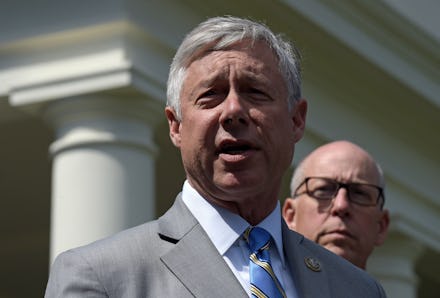What is the Upton Amendment? This last-minute add may have saved Trumpcare in the House.

By the thinnest of margins, Republicans managed to pass the American Health Care Act through the House of Representatives on Thursday.
The bill passed 217-213 Thursday afternoon. Next, it will head to the Senate and, if the Senate approves, to President Donald Trump's desk.
After failing to get enough support even to reach the floor before being yanked by Speaker of the House Paul Ryan previously, the GOP's answer to the Affordable Care Act was likely saved by an amendment from Congressman Fred Upton, a Michigan Republican.
The amendment convinced moderate Republicans, who were worried that the bill would strip too many Americans with pre-existing conditions of health insurance, to get on board with conservatives in the House Freedom Caucus, who backed the bill's efforts to strip away much of the regulations put into place by the ACA.
$8 billion in subsidies
Under the AHCA, states would be able to opt out of rules put in place by the ACA that prevent insurance companies from denying coverage to those with pre-existing conditions or charging them more for health insurance. The Upton Amendment would seek to remedy that by giving $8 billion in "assistance to reduce premiums or other out-of-pocket costs" for individuals whose premiums would increase or who would lose health insurance under the AHCA.
The problem with the amendment, some experts say, is that it doesn't go far enough. By letting states seek waivers from the ACA's pricing rules, premiums are likely to rise by $500 billion, not $8 billion, as Matthew Fielder, a fellow at the Brooking Institute, told Axios. The Upton Amendment would be "a drop in the bucket," Fielder said.
"A pittance"
"The amendment at hand focuses on high-risk pools, but the $8 billion amount is a pittance," Robert Graboyes, a fellow at George Mason's Mercatus Center, to the Hill. "Spread over five years, it's a fifth of a pittance."
Larry Levitt of the Kaiser Family Foundation estimated $8 billion would help 160,000 people with their premiums, while Karen Politz, also of Kaiser, pegged that number at 220,000. The liberal Center for American Progress put that number at 76,000.